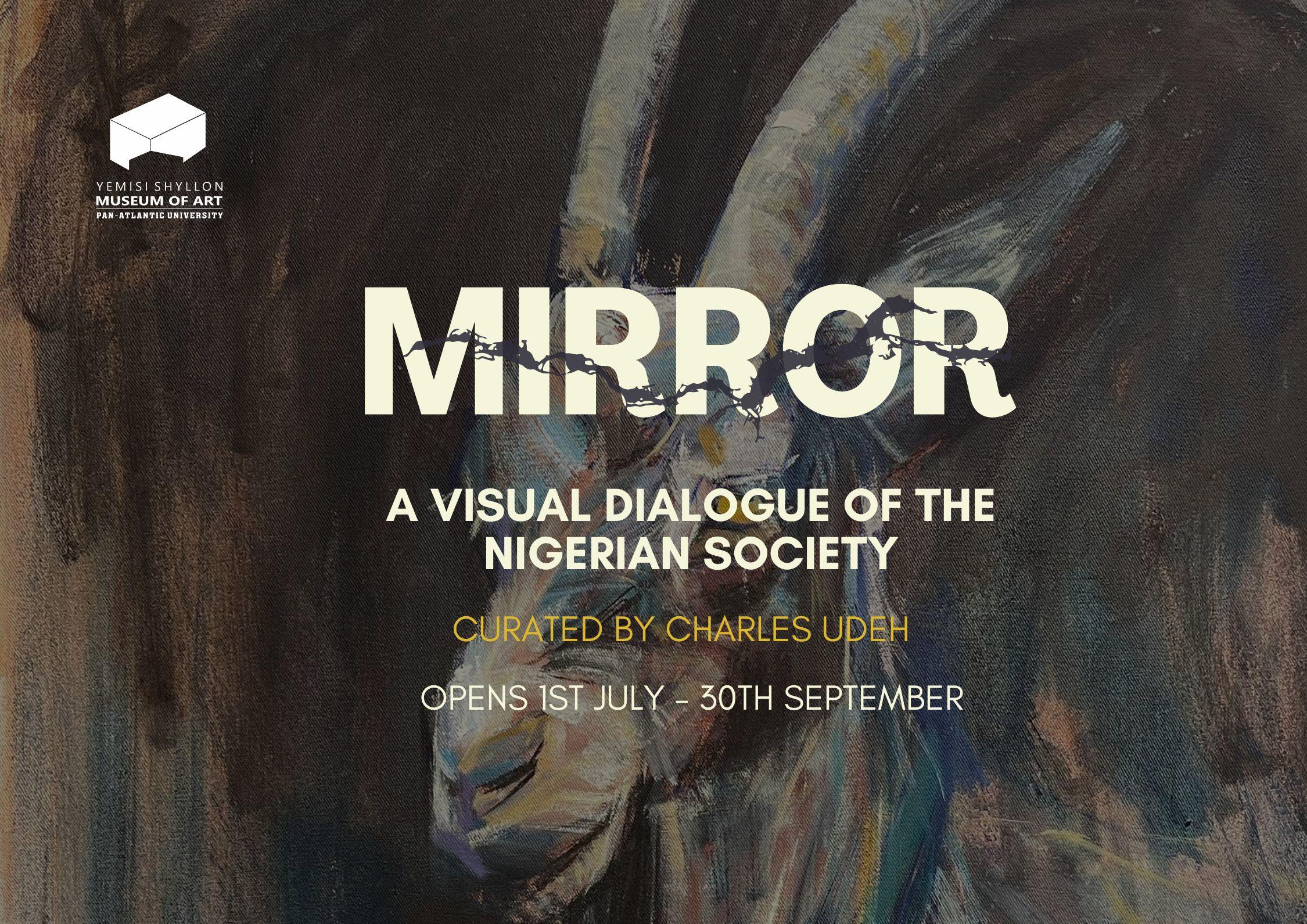
Art is a profound medium that unveils the complexities, truths, and contradictions of a society. Some works subtly reflect lived experiences, while others wield irony or paradox to provoke and challenge. Whether crafted with intent or born from instinct, these artistic expressions resonate deeply, offering insights into the essence of a community. Mirror: A Visual Dialogue on the Nigerian Society through Art, hosted by the Yemisi Shyllon Museum of Art, harnesses this transformative power to reflect, interrogate, and reimagine Nigeria’s past, present, and future through a dynamic collection of artworks.
Drawing from the museum’s extensive archive and complemented by loaned pieces from contemporary artists, Mirror creates a vibrant visual conversation. The exhibition captures Nigeria’s historical trajectory and contemporary socio-cultural landscape, spotlighting its triumphs, challenges, and aspirations. By delving into key facets of Nigerian life, cultural heritage, political dynamics, social issues, and economic realities the artworks serve as both a mirror to the nation and a lens for exploring universal themes. Organized into five distinct sections, the exhibition guides viewers through a multifaceted exploration of Nigerian society while connecting local narratives to global concerns.
The first section, Power, examines the intricate dynamics of power acquisition and its impact on Nigerian and global contexts. Through works like Tony Nsofor’s Grim Polity: Ballot Boxes and Beast of Power, Edosa Ogiugo’s The Godfather, and Kelani Abass’ Man and Machine, the interplay of ambition, authority, and influence is laid bare. These pieces probe the mechanisms of political, social, and economic power, inviting viewers to reflect on its consequences and manifestations.
This is followed by Faith, a section that explores the role of religion in shaping Nigerian identity, delving into the nation’s deep spiritual currents and their societal implications. Artworks such as the traditional carving Opon Ifa, Victor Epuk’s Adura, and Ben Osaghae’s Miracle for Sale scrutinize the interplay of faith, ritual, and commodification of wonder in the nation’s religious landscape. These works highlight both the reverence and the complexities surrounding spirituality in the daily life of Nigerians.
Headlines confronts the pressing issues dominating Nigeria’s media space, including insurgency, economic challenges, and insecurity among others. Featuring works like Hakeem Salaam’s untitled photograph, Banjo Olawumi’s The Comforter, and Damilola Opedun’s Commonwealth, this section captures the urgency and weight of contemporary crises and topical issues of national interest, prompting viewers to engage with the realities that shape public discourse.
The next section is on Women, Celebrating the contributions of women while addressing the challenges they face, this section highlights resilience, agency, and struggle within Nigerian society. Works such as Diseye Tantua’s Waiting II, Chigozie Obi’s pieces, Olawunmi Banjo’s Choice of Freedom, Peju Alatise’s Nine-Year-Old Bride, and Katume Gana’s Bridal Gown explore themes of empowerment, gender inequality, and societal expectations, offering a poignant commentary on women’s experiences.
And lastly, Legacy and Future, a forward-looking section reflecting on Nigeria’s historical roots and its aspirations for the future. By juxtaposing works that honour cultural heritage with those envisioning progress, it underscores the tension between tradition and modernity. This section encourages viewers to consider how Nigeria’s past informs its path forward in a globalized world.
A Catalyst for Reflection and Change
Mirror is more than an exhibition; it is an invitation to engage in a profound dialogue with Nigeria’s soul. By presenting art as both a reflection of society and a catalyst for critique, it fosters a deeper understanding of Nigeria’s identity within a global framework. The exhibition’s diverse works spark conversations about universal issues power, faith, societal challenges, and gender dynamics while remaining deeply rooted in the Nigerian experience.
Through this artistic journey, Mirror inspires critical reflection and meaningful dialogue, encouraging viewers to envision how art can shape perspectives and drive societal transformation. By confronting the realities depicted, audiences are invited to not only understand Nigeria’s narrative but also contribute to its ongoing story, both locally and globally.
Curated by Charles Udeh